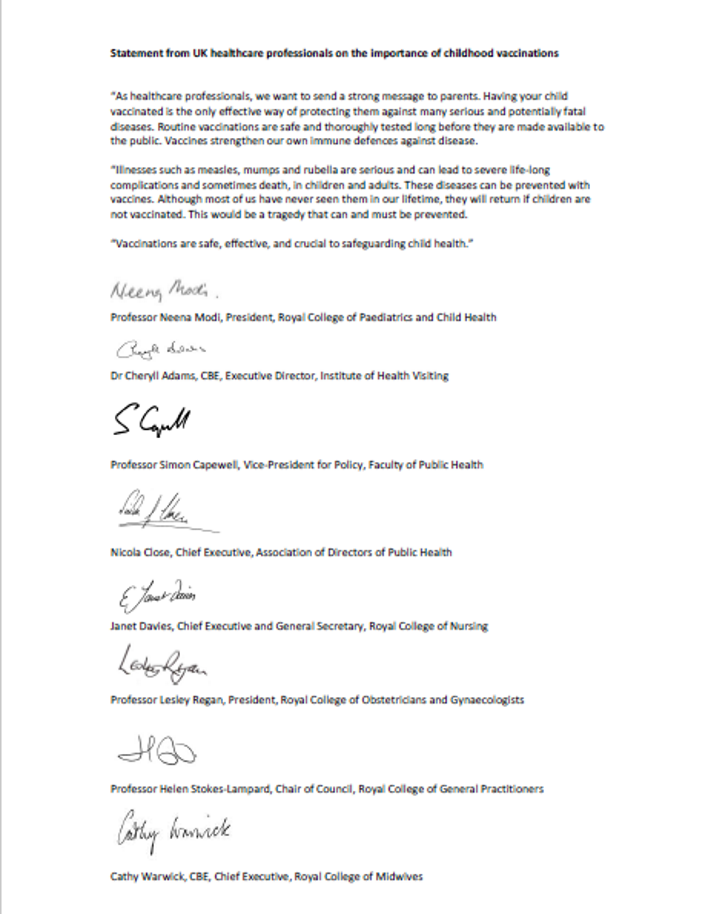Public Health England (PHE) is calling for all parents to get their children vaccinated against measles, mumps and rubella (MMR) when the vaccine is offered, or for them to take it up now if they didn’t have it at the scheduled time.
In the first quarter of 2019, there were 231 confirmed cases of measles. This figure is slightly lower compared to the same quarter last year. As measles is highly infectious, anyone who has not received two doses of MMR vaccine is at risk, particularly unvaccinated people travelling to countries where there are currently large outbreaks of measles. The recent measles cases are mainly occurring in under-vaccinated communities, particularly those with links to other countries with ongoing measles outbreaks. There has also been some spread into the wider population, such as those who may have missed out on the MMR vaccine when they were younger.
In the final quarter of 2018 94.9% of eligible children aged five received the first dose of MMR. To achieve herd immunity for measles at least 90-95% of the population need to be fully protected. One dose of the MMR vaccine is about 90-95% effective at preventing measles. After a second dose the level of protection is around 99%. Coverage of the second dose is at 87.4% for children aged five. PHE is therefore urging those who have only had one dose to ensure they are fully vaccinated with two doses.
This quarter, 795 cases of mumps have also been confirmed. No new cases of rubella were reported.
The MMR vaccine is given on the NHS as a single injection to babies as part of their routine vaccination schedule, usually within a month of their first birthday. A second injection of the vaccine is given just before starting school, usually at 3 years and 4 months. The vaccine is also available to all adults and children who are not up to date with their two doses. Anyone who is not sure if they are fully vaccinated should check with their GP and those planning to travel to Europe should check NaTHNaC travel health advice.



